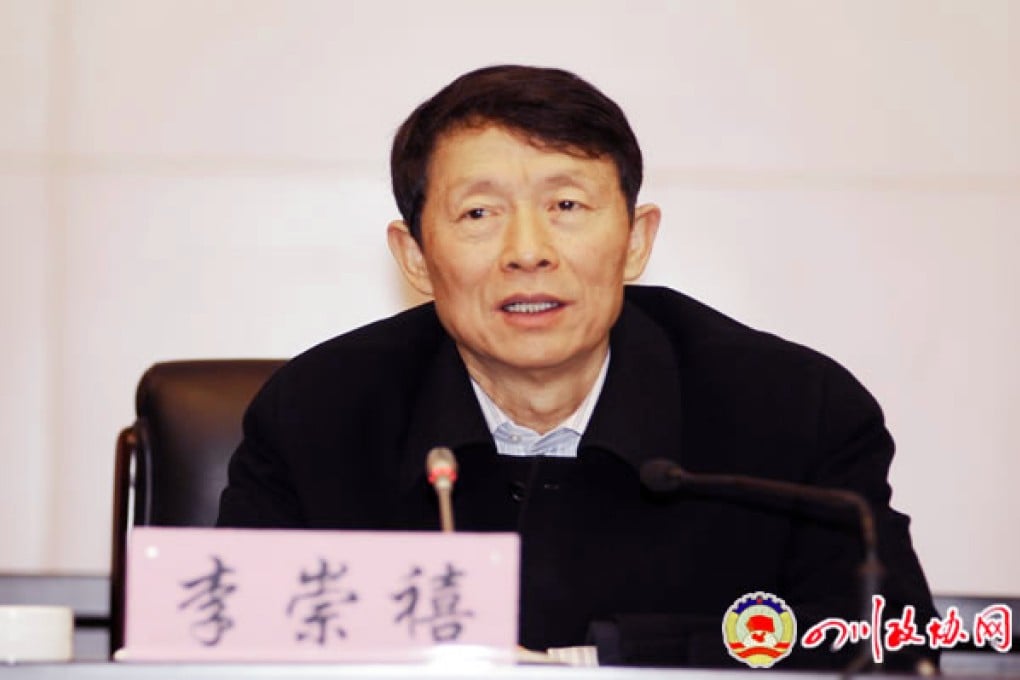Sichuan CPPCC chairman under investigation for corruption
Li Chongxi being investigated under suspicion of serious discipline and law violations

The head of Sichuan's provincial political advisory body has been placed under investigation for graft, China’s anti-corruption watchdog announced on Sunday, as President Xi Jinping’s anti-corruption drive continues.
Li Chongxi, chairman of Sichuan provincial committee of Chinese People’s Political Consultative Conference (CPPCC), is currently being investigated by the authority under suspicion of serious discipline and law violations, said a brief statement on the ruling Communist Party’s discipline inspection agency website on Sunday morning.
Officials under investigation for disciplinary offences in China, if officially confirmed, are almost certain to be removed from their current posts and charged with corruption.
The investigation of Li Chongxi came after President Xi Jinping led a nationwide effort to rein in corruption in the past year that has led to the sacking of sixteen ministerial-level officials.
Some have speculated the investigation could have links to Zhou Yongkang, China's former security tsar and one of the most powerful members of the Communist Party, as Li had risen to the top circle of provincial posts during the early 2000s when Zhou was party secretary of Sichuan.